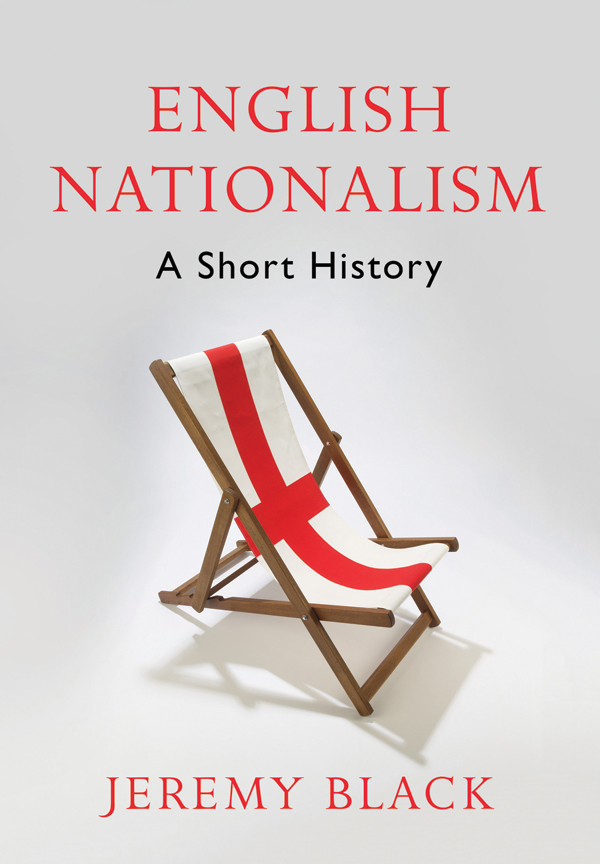Nationalism is a feeling as much as a principle. It manifests powerful emotional elements as well as the interaction of the ‘deep histories’ of particular national, or would-be national, groups with the contexts and expressions of these ‘deep histories’ in specific circumstances. These ‘deep histories’ are the understanding of the past that is central to identity as well as being an expression of this idea. The contexts include geography, climate, culture, society, economics and politics, and the experiences and expressions of each of these.
Englishness is an identity, a consciousness, and, at present, a proto-nationalism. It is the latter because there is currently no English state within the United Kingdom, which is the United Kingdom of Great Britain and Northern Ireland. Great Britain (Britain for short) itself is composed of England, Scotland, and Wales. England is the largest and, by far, the most populous part of Britain and of the United Kingdom, but it is only part of the whole. There is no English passport, Parliament or currency, nor any immediate prospect of any. Moreover, there is relatively little that is distinctive to England within Great Britain or the United Kingdom, and notably so since the relative decline in significance of the Church of England. Despite the American tendency to refer to the ‘Queen of England,’ the monarch rules the United Kingdom.
This crystallisation of identity raises the question of how far back in time one can project a form of English nationalism. If statehood is the key issue, then the creation of the Old English (Saxon) monarchy in the tenth century is critical, as that produced an English state. Moreover, from 1066 (as well as under the Romans and King Cnut), as part of a larger political realm, the English state continued until it ended with the merger of the English and Scottish parliaments in 1707.
So that is one history of English nationalism, a history made complex by the need to discuss, prior and subsequent to 1707, the consequences of being part of a larger realm. The second approach is to look at a more recent foundation, as suggested above, one that reflects a decline in Britishness. There is no unanimously correct answer. Each approach is relevant and has its merits.
Part of the problem, but also the answer, is suggested by the nature and extent of multiple identities, by the beliefs and wishes they encompass, and by the degree to which these factors vary across time. These multiple identities can be readily seen today, and were also manifested in the past. The Evening Standard of 10 October 2017 published the results of a study by Queen Mary College, University of London, based on a YouGov poll of 1,044 Londoners, which revealed that 46 per cent of those surveyed named ‘Londoner’ as their primary identity; 25 per cent European; 17 per cent British; and only 12 per cent English. These results were qualified by the question of how strongly they felt each of these identities on a scale of zero to ten—one not available hitherto for historic discussion of multiple identities. Londoner came top (7.7), followed by British (7.4), English (6.6), and European (4.9). People in London who voted in 2016 to leave the European Union felt slightly more British than they did Londoner, with scores of 7.9 and 7.7; European scored 2.5.
Multiple identities exist more broadly than with regard to nationalism, geography and ethnicity. They also relate to one’s position in the family, for example as both parent and child. Here, however, the focus is geography and nationalism, which constitute part of the aggregate identity of both England and Britain. In parallel to the argument that there exists a particularly strong identity, there is the reality of multiple and overlap-ping identities, with neither ‘multiple’ nor ‘overlapping’ providing much guidance to priorities in the event of tensions or clashes. Conflicting identities also exist: one can be both a member of the ‘Church of England’ in Scotland or Wales, or a Scot who seeks independence from Britain.
The co-existence of multiple identities has been revealed in the polls, and should usefully be extrapolated onto the past. If the 2014 Scottish referendum, in which independence was rejected, and the 2017 Scottish results in the general election, which saw a decline in the SNP vote, suggested the ability to be Scottish and British, with a consequent history of Scottish identity, then it is unclear why the same should not be true for England: it should be possible to be both English and British. That raises the question whether the standard contemporary liberal critique of Englishness as ‘extreme’ (i.e. politically partisan), or un-British, is misjudged. At present, hostility to ‘England,’ whatever that is supposed to mean, is part of the intellectual baggage of the age, both in the British Isles and abroad. The latter is possibly because England is seen as the wellspring of the British Empire. Looked at differently, in the nineteenth and early twentieth centuries, the English (but not generally the Scots) said England when they meant Britain. The Oxford History of England, the major series on national history, was defined as a study of Britain. Possibly the attenuation, and even ending, of the relationship between England and Scotland will make it easier to say England when meaning England.
English Nationalism: A Short History by Jeremy Black
June 2018 • £16.99 • 9781849049856 • 224pp
